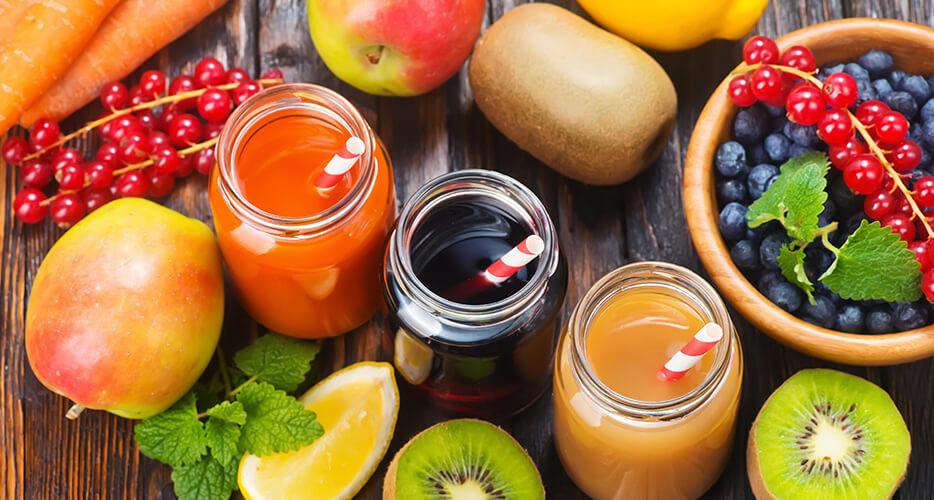
The importance of adding fruit and vegetables to the usual diet contributes to numerous beneficial properties for our health.
Misura's interview with Dr. Andrea Del Seppia
Let's talk about the topic with our nutritionist, Dr. Andrea Del Seppia.
Dr. Del Seppia, what are plant-based foods?
Foods of plant origin are a heterogeneous set of foods, whose nutritional properties depend on the category to which they belong: the main groups of plant foods are vegetables, cereals, fresh fruit, nuts, legumes and oilseeds. Numerous studies have highlighted the benefits of consuming these food sources well. In general, these are foods rich in fiber, vitamins, minerals and antioxidant substances essential for the proper functioning of our body. Their consumption has a protective effect against various diseases: it is one of the factors that help us stay healthier and live longer (WHO, 2019).
What is the role of dietary fiber?
The fiber, a non-digestible component contained in plant foods, allows the stomach to be mechanically filled by stimulating the sense of satiety and reducing the glycemic index of the meal: vegetables, in particular, have an excellent satiating power and can be a fundamental help to keep body weight at bay. In general, foods rich in fiber help maintain good regularity and, by reducing transit time, they also reduce the time that our intestines remain in contact with any dangerous substances present in the food. Dietary fiber also helps control blood lipid and sugar levels. The indigestible carbohydrates contained in some vegetables (for example chicory inulin) have a prebiotic effect, which favors the proliferation of a healthy intestinal bacterial flora.
Worldwide recommendations (WHO, 2004) recommend taking five portions of fruit and vegetables (approximately three portions of fruit and two of vegetables per day).
What are the benefits of having a diet rich in fruits and vegetables?
Despite the many beneficial properties, the consumption of fruit and vegetables is very often overlooked. For a preventive and protective function to be carried out it is essential to consume at least 400 grams of vegetables - excluding starchy substances such as tubers - every day (WHO, 2019). Fruits and vegetables are food sources with low caloric density (they have few kcal) and high nutritional value (they contain many vitamins and antioxidants) and often have a good water content. In addition, many vegetables are rich in potassium which counteracts the negative effects attributable to sodium, a mineral found in table salt which, if taken in excessive quantities, can contribute to raising blood pressure and causing water retention.
What are the strategies to increase the consumption of plant-based foods?
It is suggested to include some products of plant origin possibly in every meal of the day. During the main meals, it is possible to consume a first course based on unrefined whole grains, such as barley or spelled, and legumes, such as lentils or chickpeas (both are an excellent source of energy) seasoned with abundant vegetables . Alternatively, you can start the meal with a colorful mixed salad or, again, accompany a dish with a side dish of mixed vegetables sautéed or steamed, with the addition of extra virgin olive oil and various aromas. Making vegetables the protagonist of multicolored dishes is a strategy to avoid being considered only a banal and accessory side dish.
Two or three times a week, replacing the meat dish with a legume-based dish can be a good trick to avoid saturated fat and cholesterol intake and to increase daily fiber intake.

What about snacks?
My advice is to opt for fresh fruit and / or raw vegetables to munch on. You can also prepare a mixed fruit salad so that it is tasty even without the addition of sugars. Both fruit and vegetables are also an excellent basis for extracting extracts or centrifuges: these choices can be a valid alternative to make a healthy and low-calorie snack. Dried shell fruits (such as almonds and hazelnuts) and oily seeds (such as pumpkin or sunflower seeds) contain valuable nutrients and monounsaturated and polyunsaturated fats: those contained in nuts (omega 3), in particular, play an anti-inflammatory action . Dried fruits and oilseeds are ideal to be enjoyed as a snack, but due to their high caloric density, moderate consumption is recommended.
Which varieties is better to prefer?
To orient yourself in the choice it is advisable to vary the type and colors of the vegetables to guarantee the contribution of all the antioxidant and vitamin substances: the color of the fruit and vegetable pulp, in fact, is given by the presence of certain pigments and vitamins, such as grape anthocyanins and carrot carotenoids. These micronutrients are useful to counteract oxidative processes, protect blood vessels, help the immune system and much more. It is essential to alternate raw and cooked vegetables, since the bioavailability of antioxidants and minerals varies according to the cooking method. In the case of raw vegetables there is greater availability of thermolabile micronutrients (which are compromised by heat, such as vitamin C) and water-soluble (which are lost in any cooking water, such as potassium). However, cooked vegetables do have some benefits, first of all because they guarantee us an abundant supply of fiber, given that we often manage to eat a larger quantity of them in grams compared to raw vegetables (a salad or salad of radicchio has a low weight). For those who are not fond of vegetables as such, an excellent option is to consume them by preparing creamy velvets or minestrone. Furthermore, the bio-availability of some substances increases with cooking: this is the case of lycopene, an antioxidant molecule with a rich tomato sauce. In any case, we recommend always non-prolonged cooking with little water.
It is important to respect the seasonality of vegetable products: broccoli and oranges are better in winter, while tomatoes and cherries are to be chosen in the warm season.
The seasonal products, in addition to having a better taste, have better nutritional properties: the greater vitamin content is found when the product is freshly harvested or when it is frozen in a short time. For those with little time, therefore, it is better to avoid canned vegetables that are rich in salt and prefer frozen ones immediately after being harvested.
Read the full article on Misura® website
Read the article on Misura® official page
Link to Dr. Andrea Del Seppia page on the official Misura® website
Misura® is a registered trademark of Colussi S.p.A. The material reported in this article is the property of Colussi, who authorized its publication.